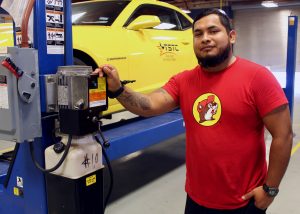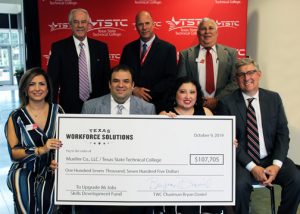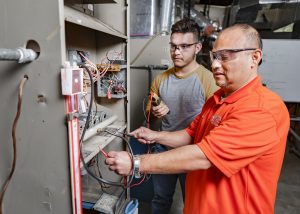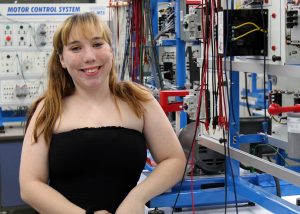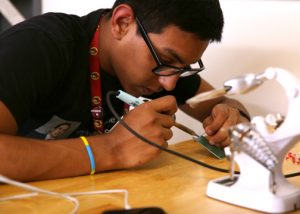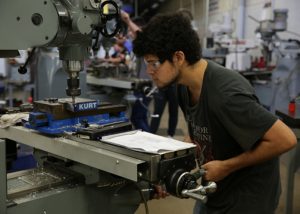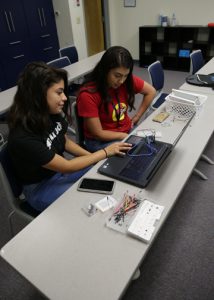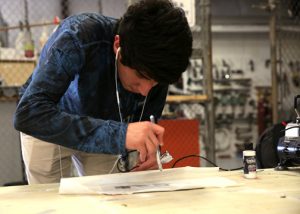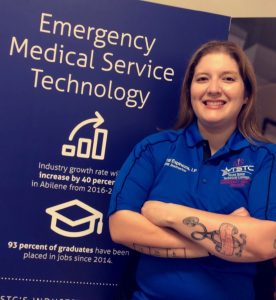From independent body shops to high-profile dealerships – auto technicians, repairers and painters are in demand, with Texas’ projected job openings to be at more than 14,000 by 2026 according to O*Net Online.
And TSTC, with its Auto Collision & Management Technology program, is ready to meet industry demand.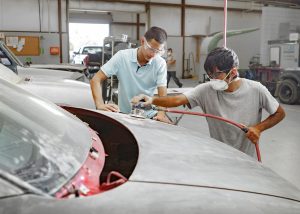
TSTC Auto Collision & Management Technology department lead and instructor Jose Vasquez said the increased need for technicians is a result of advancing automobile technology.
“Technicians are either retiring or not evolving with technology, and that gives our students a leg up in the industry because our students are learning how to handle the latest in automobile technology, along with the foundations this industry is based on,” said Vasquez.
Vasquez goes on to explain how TSTC is getting its students industry and job-ready.
What is the length of the program?
The program length ranges from two to four semesters, or one to two years.
What can a student expect when they graduate?
A student in this program has various pathways to choose from: Certificate 1, Certificate 2, associate degree or advanced technical certificate in refinishing or repair specializations. They can also earn additional certifications such as the Inter-Industry Conference on Auto Collision Repair (I-CAR) level one certification.
What skills do you learn in Auto Collision & Management Technology?
The skills learned in the program expand a wide scope in auto body repair and refinishing, painting, welding, collision repair estimation, structural analysis and sectioning, wheel alignment and business English and math.
What types of technologies are used to learn these skills?
Students in the program have access to industry-standard software, equipment and tools such as paint mixing systems, alignment machines, velocity measuring systems, diagnostic machinery and repair estimation software.
How do these skills prepare a student for the workforce?
Hands-on learning with tools and equipment that are found in industry gives students a big advantage when applying for jobs. Employers are looking for certified technicians who are job-ready and need little to no on-the-job training. So the skills they learn in the program make them more marketable and ready to be hired.
What kind of positions can a graduate from this program obtain?
Graduates from this program can work as auto body technicians, structural technicians, auto body painters and estimators and work anywhere from dealerships and auto collision shops to marine sites, aerospace and insurance companies.
TSTC graduates have been hired by local dealerships such as Boggus Ford and Hacienda Ford, Greyhound and United Launch Alliance.

